Author Doug Westerbeke Shares His Greatest Inspirations, Including the Book He Quoted at His Mom's Funeral
'A Short Walk Through a Wide World' takes readers on a journey. From Marvel to Russian literature, here's what helped its creator forge that path
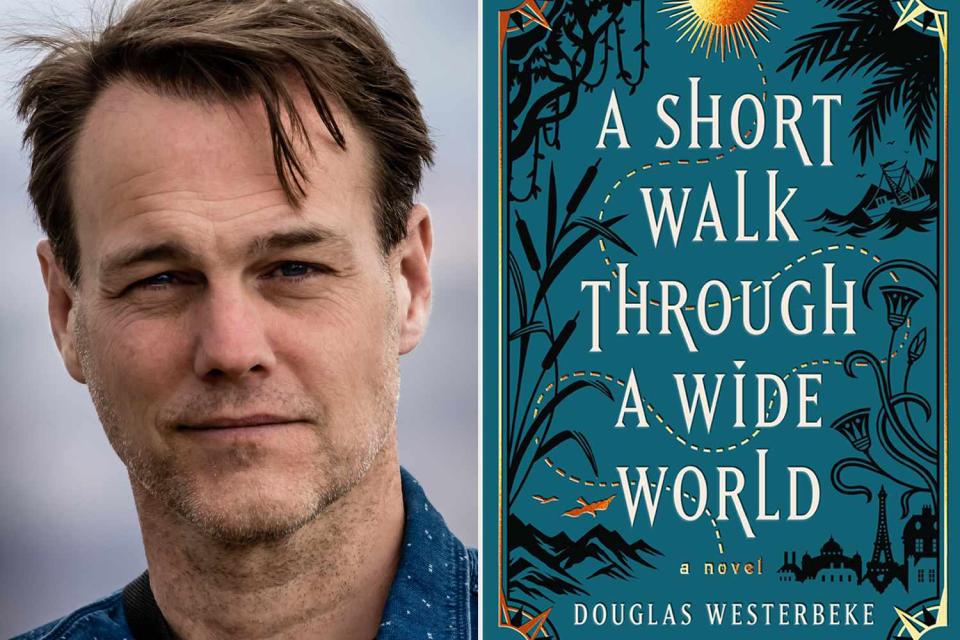
Librarian and author Douglas Westerbeke finds inspiration in all sorts of places: film, books and the broader world. His new novel, A Short Walk Through a Wide World, is an epic adventure in which a young girl under a terrible curse, Aubry Tourvel, must forever travel to new places or die.
The book, a contender for the Fallon Book Club, the Tonight Show's March Madness-style book club, is rich with all the possibilities the world can hold.
"I keep an ever-growing list of favorite things to remind myself of all the different possibilities out there: Favorite Horror Stories, Favorite Love Stories, Saddest Scenes, Guilty Pleasures," Westerbeke explains. "I do it for fun, but sometimes when I’m stuck, I will browse these lists for inspiration. I will remember the ominous opening paragraphs of White Fang, or the delicate scene where Bambi loses his mother and say, ‘Oh yes, that’s how it’s done!’"
PEOPLE asked Westerbeke to share some of his sources of inspiration, below. From anime movies to philosophy, the author finds a spark of creativity in all sorts of places. Maybe readers will find some here, too.
'Crouching Tiger, Hidden Dragon'
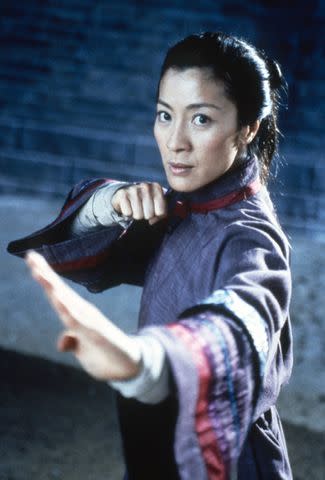
Courtesy Everett Collection
A still from Crouching Tiger, Hidden DragonThe ending of Crouching Tiger, Hidden Dragon got me deeply. Though I’ve watched it a hundred times, I only have the vaguest sense of what that moment meant when Jen leaps off the bridge. I’ve never seen a finale as poetic as that one, that defies logic, yet makes a perfect kind of sense, something that can’t be expressed in words.
'Art: A New History' by Paul Johnson
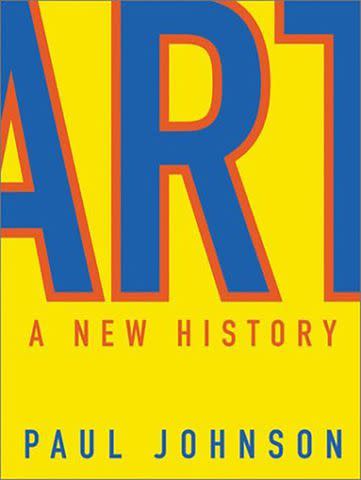
This book makes many arguments on how art progresses through the ages that convincingly overturn everything we know about art history. He also made another argument, minor in comparison, but I’ve never forgotten it: In order to be great, a work of art must touch the sublime. It must take us to a place where words, and perhaps thought itself, cannot follow.
We can’t always reach those heights, but I gave it a shot in A Short Walk. I hope, if all else fails, that readers sense the beauty and poetry that closes the story of Aubry’s life. The theory is, if they can feel it in Aubry’s life, then perhaps they can feel it in their own, too.
Indiana Jones
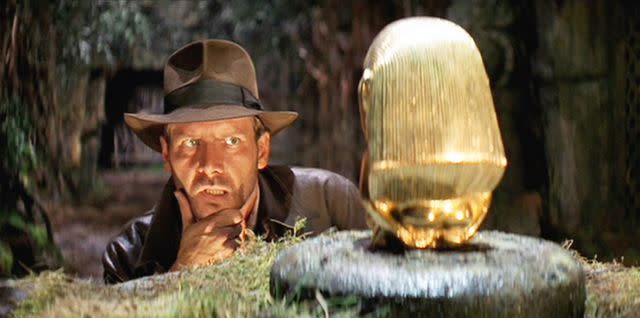
CBS via Getty
A still from 'Raiders of the Lost Ark'As a kid, I was a die-hard movie buff. I would do lawn work, shovel snow, whatever it took to get enough money for a movie ticket. Then, my friends and I would go see whatever was playing – The Empire Strikes Back, Time Bandits, The Road Warrior.
Raiders of the Lost Ark was especially brilliant to us. Far more vulnerable than James Bond, Indiana Jones is driven by a passion for archeology instead of a passion for shooting people. Plus, in the hands of Steven Spielberg, there are masterfully conceived set pieces and action sequences. It should be no surprise that a lot of the books I read during that time were novelizations of movies.
'The Bridge of San Luis Rey' by Thornton Wilder
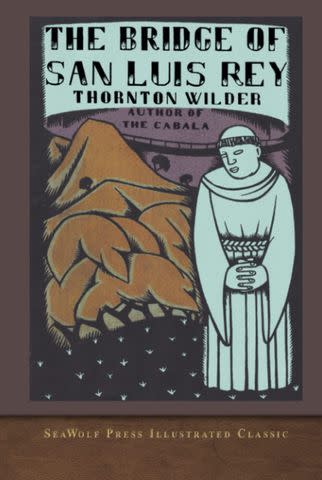
Today, a great novel is just as thrilling to me as any of those blockbusters. The Bridge of San Luis Rey knocked me sideways.
Why were those five people, with their various life stories, on that particular bridge at the very moment it broke? The two paragraphs that end the book are so moving, I recited them at my mother’s funeral.
'The Brothers Karamozov' by Fyodor Dostoevsky
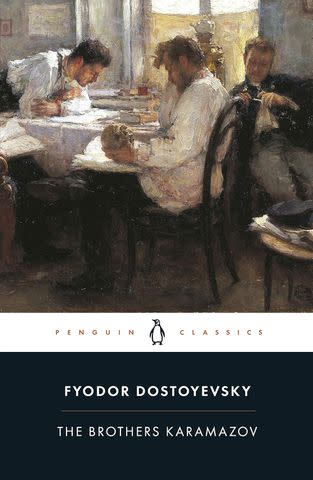
It took me a whole summer to read The Brothers Karamazov, but it was life-changing. The philosophical questions that Dostoyevsky raises, the stories within the stories, how perfectly he captured the psychology of so many characters and in such dramatic fashion.
Marvel Movies and Japanese Anime

Marvel Studios 2019
Thor in 'Avengers: Endgame'I have a lot of fun watching Marvel movies and Japanese Anime with my kids. I admire the imagination that goes into these storylines. The way they can pull two decades’ worth of so many different superheroes into a collective finale amazes me.
I’m jealous of the breadth of Everything Everywhere All at Once, the grotesque creativity that went into Attack on Titan. There is something to all that kinetic energy, the furious editing, the eye-popping visuals, that, when done well, is tough to beat.
'The Master and Margarita' by Mikhail Bulgakov
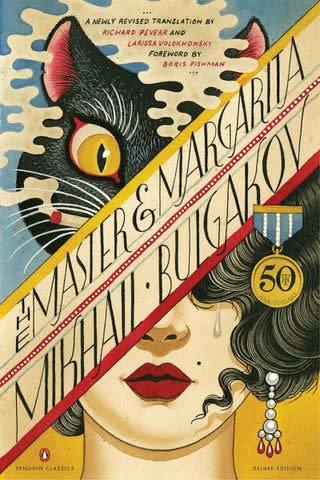
I think it was reading The Master and Margarita that gave me my big "a-ha moment." It’s a masterpiece, of course, hailed by critics everywhere as a profound literary and philosophical experience. But what struck me was the talking black cat and the killer clown having a shoot-out with the KGB, bullets flying everywhere, and, impossibly, no one getting hit. Or perhaps my favorite scene,when Margarita turns into a witch, flying around an apartment building on a broomstick, terrifying the residents.
I remember thinking, “You can do this stuff in great literature?” I fell in love with magical realism after that. It seems to me the perfect combination of rigorous intellect and rampant imagination, the genre where highbrow literature and lowbrow entertainment hang out together like old friends who haven’t seen each other in ages.
'Man’s Search for Meaning' by Viktor Frankl
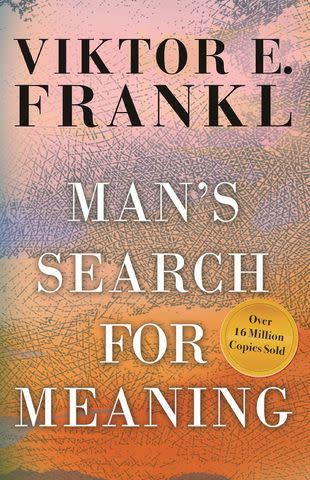
To me, this book makes more sense than any other work of philosophy out there. It’s a superbly insightful way to understand how we work, how we think and how we adapt ourselves to the most hopeless of situations. Frankl, a Holocaust survivor, knew of what he spoke. He studied the people around him and learned what separated the survivors from those who gave up.
Related: King Charles and Queen Camilla Welcome Genocide Survivors to Palace to Mark Holocaust Memorial Day
It’s the stories we write of ourselves, the tales we invent to help us make sense of our lives. In Frankl’s case, he was talking of the interior monologues we have with ourselves, but I think it’s also applied through the stories we share – the great novels, religious texts, movies that touch a nerve.
In A Short Walk, Aubry lives a life without family, without love, in a state of permanent exile. How does one find meaning in the face of what feels like a lifelong punishment? I went to Frankl for answers, and so the libraries that come and go in Aubry’s life came into being, all the uncountable people we may never know, and the stories they tell of their lives, become the backbone of Aubry’s story.
'Paradiso' by Dante Alighieri and the Bhagavad Gita
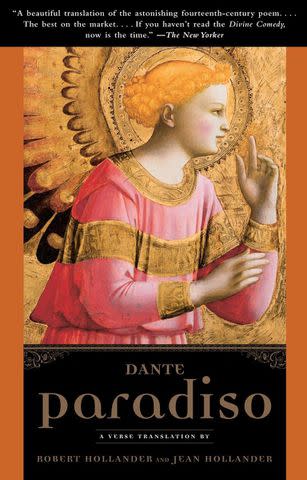
When I was six or seven years old, I became an avowed atheist, and I stuck to it into my adulthood. Then, I began to notice that many of the stories I wrote were about atheistic characters who didn’t believe, or didn’t especially like God, but were beloved by him anyway. These were my favorite stories: stories of people and their often antagonistic relationship with forces larger than themselves.
When I’d finished the early drafts of A Short Walk, it was still lacking something. I knew that underneath all the adventure, the drama, the love stories, the secret libraries, it was, at its heart, a spiritual tale. So I went to The Bhagavad Gita and Dante’s Paradiso for inspiration. From Dante, I had the idea of the pilgrim who witnesses the sublime, then returns to show others the way. From the Bhagavad Gita, I had the idea of the “core of consciousness,” a transcendent realm beyond time or space only reached through enlightenment.
Never miss a story — sign up for PEOPLE's free daily newsletter to stay up-to-date on the best of what PEOPLE has to offer, from celebrity news to compelling human interest stories.
Aubry Tourvel is not only miserable wandering the world in exile, but also engaged in her own little insurrection against forces larger than herself. To me, it’s the most epic part of a pretty epic book.
A Short Walk Through a Wide World is on sale April 2 from Avid Reader Press and is available for preorder now, wherever books are sold.
For more People news, make sure to sign up for our newsletter!
Read the original article on People.

 Yahoo Sports
Yahoo Sports 
